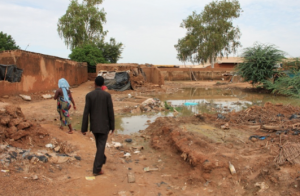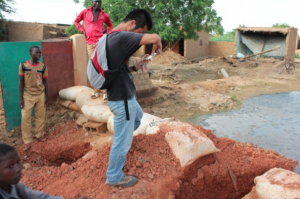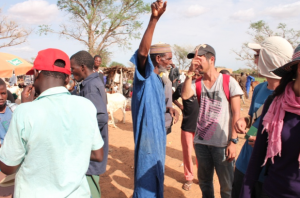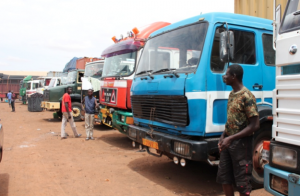Holding the Kyoto University GSS Program Field School
We held a field school as part of the Kyoto University Inter-Graduate School Global Survivability Studies Program (GSS Program).
In 2012, from September 2nd to 9th, we held a field school in Niger. Three graduate students (one from the Graduate School of Asian and African Area Studies, one from the Graduate School of Agriculture, and one from the Graduate School of Engineering) participated. Before going to Niger, preparations were carried out by holding a study group three times. In these groups, students learned about the natural environments, cultures, and societies in Niger and the Sahel area.
September is the month immediately before the harvest, and is the harshest period in farming life. Last year the crops failed due to a drought, making life tough for the inhabitants of agrarian villages. The 5,500,000 people of Niger were in danger of starvation, and the World Food Programme made an appeal to the international community to contribute 800 million dollars as emergency aid. In contrast, heavy rain fell incessantly during the 2012 rainy season, and when we visited Niger in September, the capital of Niamey had suffered damage due to surface flooding and rivers overflowing their banks. The Japanese government provided emergency aid to the people of Niger. However, there are cases in which aid supplies are held up for one or two weeks in Nigerien customs. Considering people’s security and safety, ensuring food security, and the form that support and cooperation should take amidst Niger’s fluctuating weather conditions and rapidly increasing population, discussions were held with participants offering their views as to how to these issues should be addressed from the perspective of their individual areas of study.
 |
Damage to homes caused by the Niger River overflowing its banks. |
 |
Response of the local residents to flood water. |
 |
A market scene. |
 |
The West African distribution network and the flow of aid supplies. |



 Select Your Language
Select Your Language


